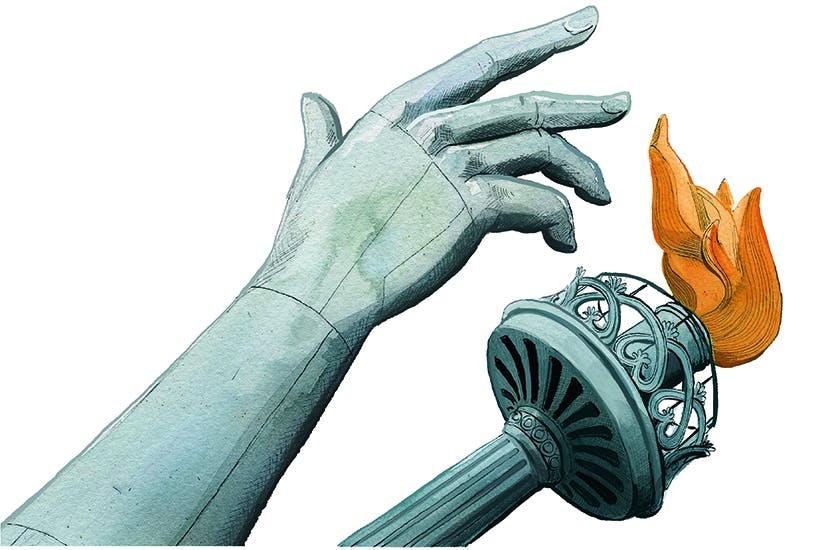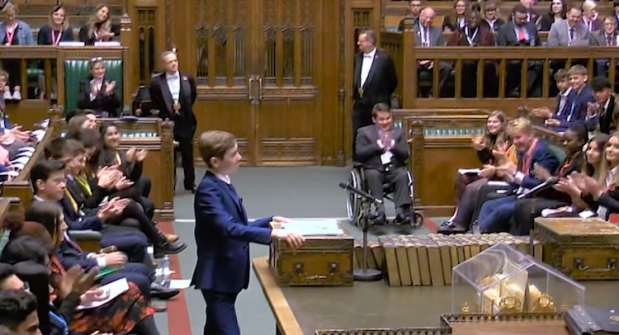A new kind of politics has taken root, righteous intimidation. Occasional outbursts of violent outrage are not new, but today righteous intimidation has become the deliberate first choice of many campaigners. Climate campaigners shut down newspapers by blockading printworkers while race campaigners deface and tear down statues. Twitter mobs try to get people sacked, silenced, or arrested for voicing opinions they don’t like. Their motives are the same as violent mobs: not content with a vigorous exchange of views, they seek to suppress opponents.
Just as the politics of righteous intimidation is getting up to full steam, the government has established the Commission on Race and Ethnic Disparities (CRED) to investigate disparities between ethnic groups. From its terms of reference, the commission is prepared to conclude that disparities are not the result of racial discrimination, if that is where the evidence takes it. In approaching racial disparities with an inquiring and open mind the commission has stepped into one of the biggest minefields in the age of righteous intimidation.
But it needs to do more than carry out a statistical analysis to discover the reasons for ethnic disparities. It should question the divisive mindset that dominates groups like Black Lives Matter. The danger is that the commission will be used to replenish the stock of grievances exploited by identity-based campaign groups. It should not only challenge the view that disparities between ethnic groups should automatically be taken as evidence of discrimination, it should also question the assumption that society is made up of client groups and that the purpose of politics is to ‘deliver on’ their demands. Under this model politicians become the patrons or delivery agents for sectarian interests.
The commission should question the view of the human condition that underlies identity culture. Identity politics portrays a world of victims and their oppressors, but we must make decisions as active players who have to decide how to lead our own lives. Should it be a life of struggle in the hope of adding something to human accomplishment, possibly depending on our particular talents, in medicine, science, sport, voluntary work, literature, or upholding international peace? Or perhaps our sights should be closer to home, and focus on being a good neighbour, friend, parent or partner. We all have to choose between a life pursuing narrow private interests or one devoted to noble purposes in mutual concert with like-minded people. We can opt for a life in which our courage is tested, our abilities stretched, or we can opt for an easy life, comfortable, but with none of the rewards that may come from pushing ourselves.
We can choose a society in which we expect a lot of ourselves and of each other. And we can try to encourage politics as a higher calling, in which the aim is to enact and uphold laws that create space for human accomplishment. Being a delivery agent for sectarian client groups hardly compares with building and preserving the institutional foundations for the next wave of human achievements.
Alexis de Tocqueville was one of the earliest writers to warn of the dangers inherent in settling down to complacent materialism. It would allow rulers to assume powers over us that might stifle all liberty. He hoped for free societies that provided for a rich life of the mind and nobility of purpose. Mrs Thatcher’s enduring appeal, despite her personal and political flaws, came from her championing of ‘vigorous virtues’, such as courage, heroism, determination, independence of mind, risk-taking, being morally upright, and resilience in the face of adversity.
Liberty expects much of its citizens. Identity politics, by contrast, diminishes the individual to a maker of demands at the expense of others and a seeker of grievances that can be exploited politically. One consequence has been the invention of new terms for taking offence at harmless remarks not intended as insults or even slights, such as ‘microaggressions’. They are ‘micro’ but they are not aggressions. They are given that name to justify retaliation. The term was invented by people who want to excuse their own aggression by making false accusations.
Claiming that such ‘racism’ is unconscious is no answer. Identity culture is based on a low view of the human condition that assumes the worst in us. Unconscious attitudes are taken to be racist, and the possibility that people could be unconsciously anti-racist is ignored. In truth, anti-racism is an entrenched cultural trait of the British people. We judge people by the things they can change about themselves, not the characteristics that can’t be altered.
Identity politics implies a society in which our lives are orchestrated by political leaders and in which political loyalties are founded on resentment and grievances, some real and some invented. We are enjoined to define some other people as our oppressors instead of looking within ourselves for the strengths necessary to lead a successful life.
A liberal society raises its eyes from petty grievances and slights to noble purposes. And where there are genuine injustices it does not exploit them for sectarian advantage. It sees justice as the main pillar upholding liberal-democracy and when injustice occurs it seeks a remedy that is for the benefit of all. The awful death of George Floyd is a recent example. For liberals, the incident unites us all in condemnation of an obvious wrong and in a shared determination to do everything humanly possible to prevent a repetition.
The politics of righteous intimidation, whether motivated by racial identity or concern about climate change, is incompatible with a free and democratic society in which we try to learn from each other by the forthright exchange of views. Racial disparities and climate change are more like convenient camouflage for the long-standing opponents of liberal-democracy inspired by Trotsky’s ‘death agony of capitalism and the tasks of the fourth international’. He urged revolutionaries to take advantage of contemporary political disputes but without forgetting ‘the correct revolutionary perspective’. They should make ‘transitional demands’ which are acceptable to reformists when the real aim was revolution. Genuine disputes, problems and injustices are treated as opportunities to raise the consciousness of oppressed people. This means stirring up resentment, heightening grievances, or blaming the rich or other oppressors.
Identity politics is based on a shrunken view of the human condition; liberty, its opposite, is based on a soaring conception of human potential rooted in equal justice and laws, policies and institutions, that allow everyone a fighting chance of adding their bit to human accomplishment, whether poetic or prosaic. Most of us will use our freedom to be public-spirited citizens in our dealings with everyone we encounter in our daily lives, and a few may reach the outermost frontiers of human knowledge.
Got something to add? Join the discussion and comment below.
Get 10 issues for just $10
Subscribe to The Spectator Australia today for the next 10 magazine issues, plus full online access, for just $10.




















Comments
Don't miss out
Join the conversation with other Spectator Australia readers. Subscribe to leave a comment.
SUBSCRIBEAlready a subscriber? Log in